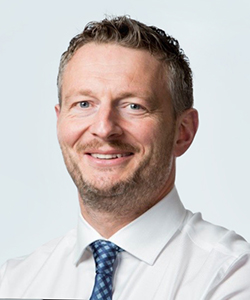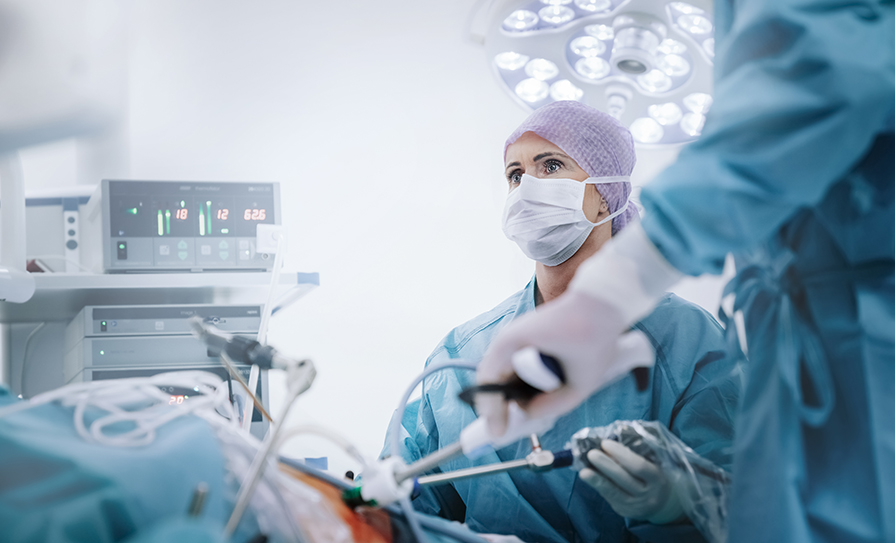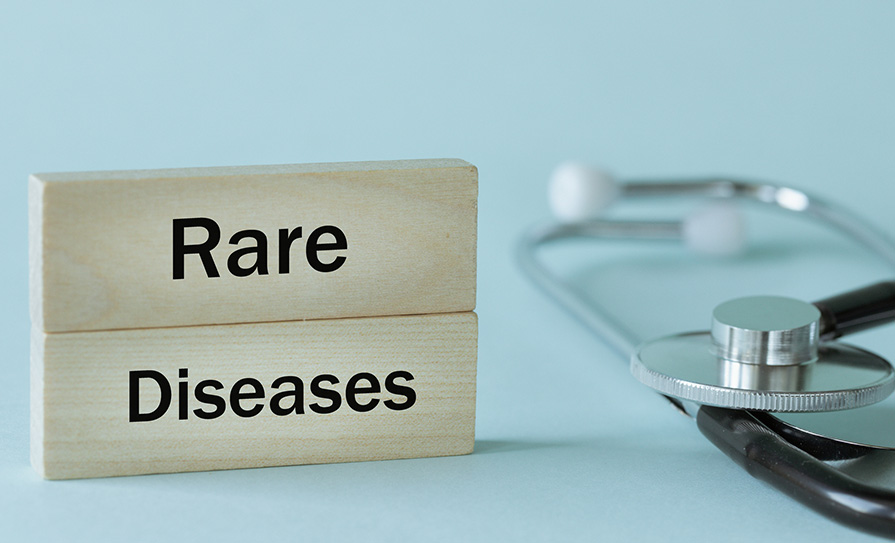Consultant Endocrinologist Prof Francis Finucane speaks with Pat Kelly about a
ground-breaking new Master’s in Obesity programme and strategies to stem the epidemic
Prof Francis Finucane is a Consultant Endocrinologist at Galway University Hospitals, an Honorary Full Professor in Medicine at University of Galway, and Council Member of the RCPI.
Over the years, he has developed a special interest in obesity, its risk factors, its impact on human health, and the dangers posed by the obesity epidemic to public health.
Prof Finucane identified the need for specialised medical training in this area and was instrumental in establishing the MSc in Obesity in Galway, a new Master’s programme that provides a broad and comprehensive curriculum that is clinically relevant, but also features a strong theoretical basis. He also led a clinical study on patients attending the obesity clinic at Galway University Hospitals in collaboration with Brunel University, London, titled the GERONIMO project. It assessed how patients with severe and complicated obesity respond differently to an intensive dietary intervention, replacing their usual meals with just milk (and nutritional supplements), based on their genetics.
Prof Finucane and the team analysed small variations in hundreds of genes that are known to be associated with obesity and created a ‘genetic risk score’. Overall, the participants lost 16 per cent of their body weight over 24 weeks.

Challenges
Prof Finucane spoke with the Medical Independent (MI) about the Master’s programme and the challenges in attempting to, at the very least, slow down the rates of obesity in this worsening crisis. “After graduating from college and deciding that I wanted to do medicine in particular, as opposed to surgery or paediatrics, I was fortunate to work with some very expert and internationally recognised endocrinologists in my training in Dublin,” said Prof Finucane. “In particular, I worked in St James’s Hospital with Prof John Nolan, who had a special interest in type 2 diabetes. It’s the most common form of diabetes and was traditionally thought of as a relatively straightforward problem, and was considered a ‘lifestyle-related’ disorder, for example due to inadequate exercise and too much of the wrong type of food.
“Nobody gave it much more consideration than that, but when I worked with John, he made me realise how much more nuanced it was – a combination of bad luck, genetic factors, and dietary and physical activity considerations, as well as the fact that no two patients with diabetes are the same,” said Prof Finucane.
“My real area of interest was type 2 diabetes; I completed my MD in St James’s Hospital and Trinity College Dublin, researching the resistance that young people with type 2 diabetes have to the beneficial effects of exercise, and exploring why those differences might arise.”
Prof Finucane then completed post-doctoral research at the University of Cambridge MRC Epidemiology Unit to learn more about the factors that give rise to type 2 diabetes. “And, of course, obesity is a big driver of that,” he said.

From there, he went to Galway University Hospitals. They were looking for an obesity physician who would lead the medical element of a service for patients with severe and complicated obesity with a high BMI and all the associated complications, such as diabetes.
“And [it] has been a very exciting 12 years or so,” Prof Finucane said.
Burden
He pointed out that University of Galway has for some time been aware of the burden that obesity poses to the individual and to society. In recognition of this, the university asked Prof Finucane to lead the establishment of a Master’s in Obesity programme. This learning is not necessarily restricted to healthcare professionals, he pointed out, but is accessible to other degree holders from business, social science or humanities backgrounds, for example, who are interested in exploring obesity and gaining a formal educational qualification in that area.
The Master’s programme has been in existence for three years and Prof Finucane said there has been a high level of engagement. “This interest has been predictable from healthcare professionals, but also from people from different backgrounds, such as from the food industry. One of the people who did the programme is a philosopher in her ‘day job’ and is now describing important new philosophical considerations around how we define and solve the problem of obesity,” said Prof Finucane.
“The Master’s in Obesity programme is a bit like an MBA, in the sense that looking at the problem of obesity as a purely biomedical one is over-simplistic. It’s also a political problem, a sociological problem, an ethical problem, a moral problem, and a philosophical problem. It’s a business problem too. We are hoping that we can have that appeal to a broader group of people who might see this as an interesting thing to do.”
Such potential candidates could include people from legal, political or sociological backgrounds, who will find the subject matter fascinating in the context of tackling any societal problem, said Prof Finucane.
It is well-known that the statistics on the obesity epidemic are stark; however, Prof Finucane suggested there is “a little uncertainty” around the figures. “You will often hear in the media some discussion about Ireland being the most obese nation in Europe by 2030, for example,” he said. “But if you look at the statistics from Europe, we are around the middle of the table – I don’t like the ‘league table’ analogy, but we are about average in terms of European adult obesity rates. In Europe, around 53 per cent of adults are overweight or obese, and in Ireland, it’s around 54 per cent, depending on which study you pick.”
Human biology
“There are different studies that would suggest the numbers are higher – a Healthy Ireland survey said it’s more like 61 per cent of adults who are overweight or obese, but that’s not what the European epidemiological studies would say, and I think it’s important to recognise that,” he continued. “I believe we are 12th and 16th out of 27 countries for men and women, respectively. The point that I am making is that we are not as badly affected as other European countries and this is not a reflection of Ireland’s ‘lack of collective responsibility’ or willpower, for example. It’s not a reflection on our national ‘greed’ or ‘laziness’ – this is a reflection on human biology.
“When you over-produce and over-market massive volumes of unhealthy ultra-processed foods, the population is going to gain weight and you are going to see an increase in the number of people with a high BMI.”
However, he highlighted some figures that are clearer and more troubling in regard to older Irish adults. “Dr Kate O’Neill and Prof Patricia Kearney from [University College Cork] have examined the robust epidemiological data from Prof Rose Anne Kenny’s TILDA study and found that in people over the age of 50 in Ireland, 7.9 per cent would fulfil the criteria for bariatric surgery, in that they have severe obesity – a BMI over 40kgm2, or over 35kgm2 with a complication, such as hypertension, dyslipidaemia, or type 2 diabetes. These are staggering numbers, equating to about 93,000 people, based on 2016 Census figures. That has probably gone up with our ageing population.”
Bariatric surgery
“If you ask a bariatric surgeon, they will tell you that around half of the bariatric surgery patients are over 50, and half are under 50,” he continued. “So as a ‘back of the envelope’ calculation, we have around 200,000 people in Ireland who would benefit from bariatric surgery and who would fulfil the criteria for it, if they wanted it, but only about 10 per cent of those would seek bariatric surgery.”
In Ireland, the number of bariatric surgeries has increased and currently approximately 150 such procedures are performed annually. However, there remains significant unmet demand. Prof Helen Heneghan, Consultant Bariatric and General Surgeon, St Vincent’s University Hospital, Dublin, has been leading the delivery of public bariatric surgery, including during the Covid-19 pandemic. “But say, for example, if we were doing 300 bariatric surgeries per year in Ireland by the end of 2023,” Prof Finucane posited. “That doesn’t seem too bad, until you look at the number of people needing and wanting it. Compare and contrast that with a similar operation that requires the same length of stay and also treats a ‘lifestyle-related’ condition – cholecystectomy for gallstones, of which we do approximately 6,000 operations each year in the State.
“So, the State is willing to provide acute upper GI surgical care, which requires a two-day hospital admission, is done by keyhole and has a mortality rate of about one-in-1,000 for people with gallstones, but they won’t do it for people with obesity,” he told MI. “I think that the reason for that is the perception of obesity as a personality flaw, as opposed to a complex neuro-behavioural disorder. Things are changing, but not quickly enough for affected patients. To take another recent example, the communication from the Medical Council discouraging the use of semaglutide for patients with obesity, on the basis that it deprived people with diabetes of effective treatment, is symptomatic of the institutionalised bias and stigma against patients with obesity in Ireland.”
Prof Finucane was asked whether some patients feel ‘judged’ because their obesity is perceived as a self-inflicted lifestyle choice, in common with some patients who have a heart or lung condition related to smoking, for example. “I think it’s a fair criticism of the biomedical establishment culture,” he commented. “Of course, we should not stigmatise people who smoke any more than we should stigmatise people who eat too much. About one-third of my job is working in acute medical on-call; I have just come off a two-week stint on the wards where we see people with smoking- or alcohol-related disorders, as well as all the other conditions, like cancer,” Prof Finucane continued. “I think we have a slightly different view of the smoking issue versus obesity. The difference is, we tend to stigmatise [the habit of] smoking, whereas we stigmatise being overweight or having obesity. We don’t stigmatise tar stains on people’s fingers when they smoke heavily; we don’t stigmatise COPD; we don’t stigmatise the use of inhalers or machines to help you breathe. Not to sound sanctimonious, but if we took a similar approach to the obesity problem that we took towards the problems caused by smoking, we would be going after unhealthy foods very aggressively, the way we went after cigarettes.
“I don’t like stigmatising people who smoke, but I do agree with the heavy taxation on cigarettes and I do agree with the smoking ban – I think it’s the single most important public health measure that anybody has introduced, and Time magazine recognises it is one of the top 20 most important healthcare developments of the first 20 years of this century. Of course, there were doctors lobbying for it in the background, but these developments are politically led, not clinically led.”
‘I do perceive that as the biggest threat to the
delivery of effective solutions for the obesity
problem – effective food industry lobbying
coupled with ineffective public health lobbying‘
Fast-food lobby
While smoking as a habit has been marginalised and advertising influence curtailed, the fast-food lobby now represents a powerful entity that is still free to market and ‘nudge’ people towards their products. The proliferation of fast-food outlets offering more food and bigger portions for less money represents a powerful and influential entity, with funds and influence that make curtailing them a difficult task. Prof Finucane was asked if, bearing this in mind, clinicians and politicians face a steep uphill battle to reverse the trend.
“I don’t see it as a personal crusade or anything like that, but I certainly do think about the people in charge of making decisions around, for example, how stringent we should be in our targets around reformulation or how stringent we should be about restricting advertising,” Prof Finucane said.
“We are hearing one thing from a public health lobby that is not hugely effective, and then we also have very sophisticated, slick, well-resourced, and heavily invested-in messages from lobbyists who are paid to provide the exact opposite message to Government on the best way to lead the country, in a way that is completely contrary to good public health. That is a massive problem,” he said. “I do perceive that as the biggest threat to the delivery of effective solutions for the obesity problem – effective food industry lobbying coupled with ineffective public health lobbying.”
However, Prof Finucane and colleagues are doing their utmost to contribute to the solution to the obesity epidemic, and one way to do this is to grow the Master’s in Obesity programme. “There’s an old paper written by an epidemiologist called Geoffrey Rose, who is regarded as the father of preventative medicine,” he told MI. “The paper was titled ‘Sick Individuals and Sick Populations’ and published in 1985, but it was so important and fundamental to epidemiology and public health that it was actually re-published in 2001. It’s freely available online and in my opinion, it is the single most important paper on which to base a solution to the obesity crisis. It sets out the approach that anyone has to take in tackling a public health problem, such as cancer, road traffic accidents, alcoholic liver disease, or Covid.”
Two-pronged approach
“It’s like a template, and it shows that you have to take a two-pronged approach to any of these problems,” he continued. “On the one hand, you have to offer help to people who are already affected when the ‘bomb’ has already gone off, so to speak. For example, in cardiovascular disease, you don’t say to somebody who has 10/10 central chest pain from an MI, ‘listen, you need to cut out the cigarettes, exercise more, and eat less’ – we stent their blocked artery…. That is called the high-risk approach, for people already affected by the disease.
“With lung cancer, you don’t say to someone, ‘stop smoking’ – you remove the tumour, or irradiate it, or whatever you need to do. Likewise we don’t treat melanoma with sun screen. That’s the high-risk approach and it’s the same with obesity; we have to provide surgery and medications to patients worst affected by obesity, where it is clinically beneficial and cost-effective to do so, like with any other treatment. Often these treatments are prohibitively expensive.”
Discussing the high-risk approach, Prof Finucane concluded that, crucially, this needs to be combined with population-level measures to reduce the number of people being newly diagnosed with obesity. This would include fiscal measures to make ultra-processed food more expensive, restricting the advertising of these products, especially to children, and also making the built environment more conducive to physical activity –such as wider cycle lanes, he added.













Leave a Reply
You must be logged in to post a comment.